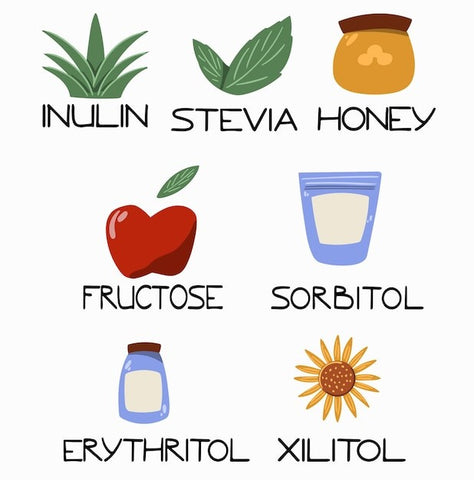
In the realm of natural sweeteners, honey stands distinctly as a healthier, flavorful, and versatile alternative to conventional table sugar. This golden elixir, produced by bees, has been cherished for ages, not merely for its palatable sweetness but also its medicinal properties. Today, honey is increasingly acknowledged as an ideal sugar substitute, offering a range of health benefits while satisfying our sweet tooth. This article dives into natural honey and its role as a healthier sweetener.

Image Source: FreeImages
1. A Glimpse into the Past: Honey in History
In the annals of human history, honey was celebrated as a divine offering, a preservative for the deceased, and a potent medicinal remedy. Ancient civilizations utilized honey not only as a dietary staple but also as a healing agent for wounds and cosmetic purposes. This venerable status of honey in human culture underscores its innate worth beyond just being a sweetener.
2. The Making of Honey: A Labor of Love
Honey production is a testament to the industriousness of bees. Using nectar from flowers, bees produce honey, a sweet liquid nourishing their colonies. The process involves complex enzymatic reactions, transforming the floral nectar into honey, which is then stored within the hive. The character of honey, including its texture and flavor, is determined by the specific flowers the bees visit.

3. The Versatility of Honey: From Dark to Light
The world of honey is a spectrum of colors, flavors, and nutritional profiles, depending on the floral source. From the dark, malt-flavored buckwheat honey to the light, tea-like fireweed honey, a variety suits every palate. Each type of honey comes with its unique taste and nutrient composition, making honey a versatile sugar substitute.
4. The Healthier Sweet: Nutritional Profile of Honey
Honey packs a nutritional punch that ordinary sugar lacks. Its composition includes fructose, glucose, water, and trace minerals like iron, calcium, potassium, and magnesium. Honey also contains flavonoids, potent antioxidants with anti-inflammatory properties. Despite its high carbohydrate content and moderate glycemic index (GI), honey is perceived as a healthier sweet due to its complex nutritional makeup.

7. Honey vs. Sugar: A Nutritional Face-off
When pitched against sugar, honey emerges as a healthier sweet. It has a lower GI, implying a slower rise in blood sugar levels, and is denser in nutrients. However, honey is also higher in calories and must be consumed mindfully, especially by individuals managing diabetes or weight issues.
6. Honey: An Antidote for Allergies?
Raw, unpasteurized honey has been linked to alleviating allergy symptoms. Local pollen in raw honey can potentially desensitize allergic responses, offering some relief. However, scientific evidence supporting this claim is still developing, and more research is needed.
7. Honey in Your Kitchen: Cooking and Baking
In the culinary world, honey is a favored sweetener for its richness and versatility. It lends itself beautifully to moist, dense, and full-flavored bakes, sauces, and hot drinks. Its high fructose content makes it sweeter than sugar, requiring smaller quantities. However, due to its liquid nature, adjustments in fluid quantities in recipes may be necessary.
8. The Downsides of Honey: A Note of Caution
Despite its numerous benefits, honey has its drawbacks. Its high sugar content can contribute to weight gain and elevated blood sugar levels if consumed irresponsibly. Moreover, honey, particularly raw honey, can pose risks to infants under one year due to the presence of bacterial spores.
9. Embracing Moderation: Final Thoughts
As a sugar substitute, natural honey undeniably offers a healthier sweetener. However, like all good things, it should be enjoyed in moderation. For those on special diets or with specific health concerns, it's advisable to consult a healthcare professional before making significant dietary changes.
So, the next time you reach for a sweetener, consider honey, the natural, healthier sweet that has sweetened human lives for centuries. It's not just a sugar substitute; it's a testament to nature's bounty and the hard work of countless bees. Embrace the sweetness of honey responsibly, and let it enhance your culinary adventures and health.
